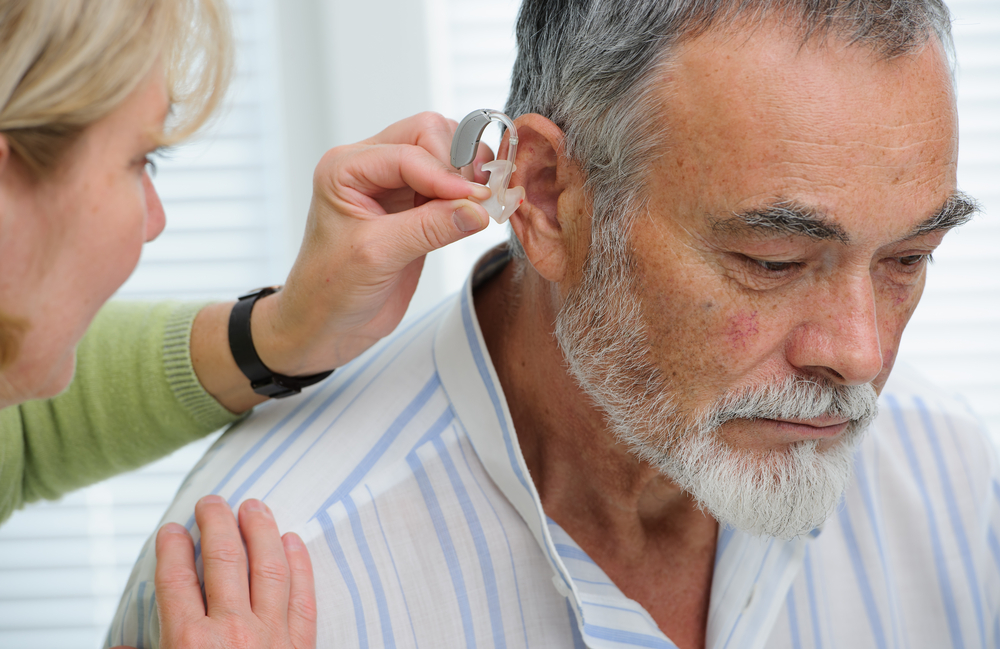Hearing is one of the five senses that enable us to perceive and interact with the world around us. It plays an essential role in our daily lives, from fostering communication and social connections, to ensuring our safety and well-being. However, hearing loss is a prevalent issue that affects millions of people across the globe. When left unaddressed, it can have significant impacts on one’s overall quality of life. Hearing aids are a common and effective solution for individuals with hearing loss, as they can help to improve auditory abilities and restore a sense of normalcy. This article will explore when one should consider getting hearing aids, the different types available, and where to look for them.
When should you get hearing aids?
Hearing loss can manifest in various ways, and it is essential to recognize the signs that indicate it may be time to consider hearing aids. Some common symptoms of hearing loss include:
- Difficulty understanding speech, particularly in noisy environments or when multiple people are talking at once.
- Frequently asking others to repeat themselves or speak more clearly.
- Feeling the need to turn up the volume on the television, radio, or other devices to hear them properly.
- Tinnitus, or a persistent ringing, buzzing, or hissing sound in the ears.
- Struggling to hear high-pitched sounds, such as birdsong or children’s voices.
- Withdrawal from social situations due to difficulty hearing and participating in conversations.
If you are experiencing any of these symptoms, it is crucial to consult with an audiologist or hearing healthcare professional. They can perform a comprehensive evaluation to determine the extent of your hearing loss and recommend appropriate treatment options, which may include hearing aids.
Different types of hearing aids
There is a wide range of hearing aid styles and technologies available to suit the diverse needs and preferences of individuals with hearing loss. Some of the most common types of hearing aids include:
- Behind-the-Ear (BTE) hearing aids: These devices consist of a small case that rests behind the ear, connected to an earmold or earpiece that sits inside the ear canal. BTE hearing aids are versatile and suitable for mild to profound hearing loss. They can accommodate various features, such as directional microphones and telecoils, which can improve speech understanding and phone conversations.
- Receiver-in-Canal (RIC) and Receiver-in-the-Ear (RITE) hearing aids: Similar to BTE models, these devices have a small case that sits behind the ear but feature a tiny speaker directly in the ear canal. This design allows for a more natural sound quality and is well-suited for mild to severe hearing loss.
- In-the-Ear (ITE) hearing aids: These custom devices are molded to fit within the outer portion of the ear and can be discreetly hidden by the ear’s natural folds. ITE hearing aids are suitable for mild to severe hearing loss and can include various features, such as volume controls and directional microphones.
- In-the-Canal (ITC) and Completely-in-Canal (CIC) hearing aids: These devices are even smaller and more discreet than ITE models, as they are custom molded to fit partially or entirely within the ear canal. ITC and CIC hearing aids are ideal for mild to moderately severe hearing loss but may be more challenging to handle due to their size.
- Invisible-in-Canal (IIC) hearing aids: The most discreet option, IIC hearing aids are custom-fitted to sit deeply within the ear canal, rendering them virtually invisible. They are suitable for mild to moderately severe hearing loss but may not include as many features or be as easy to handle as larger models.
- Bone-anchored hearing aids (BAHA): These devices are surgically implanted and directly stimulate the inner ear through bone conduction, bypassing the outer and middle ear. BAHA is an option for individuals with conductive hearing loss, single-sided deafness, or those who cannot wear traditional hearing aids due to medical reasons.
Where to look for hearing aids
When searching for hearing aids, it is essential to seek the guidance of a qualified hearing healthcare professional. They can help you navigate the various options and ensure that you select the most appropriate device for your specific needs and lifestyle. Some places to look for hearing aids include:
- Audiologist’s or hearing healthcare professional’s office: These professionals can provide a comprehensive evaluation, recommend suitable hearing aid options, and ensure proper fitting and programming of the devices. They can also offer ongoing support, maintenance, and adjustments as needed.
- Hearing aid dispensers: Some licensed hearing aid dispensers may not have the same level of training or expertise as audiologists but can still provide hearing aid sales and fitting services.
- Retail hearing aid stores: These specialized stores focus on the sale and fitting of hearing aids, often offering a wide range of brands and models. While they may not provide the same level of personalized care as an audiologist’s office, they can be a convenient option for some individuals.
- Online hearing aid providers: With advancements in technology and remote fitting capabilities, some companies now offer hearing aids for purchase online. While this option may come with cost savings, it is essential to exercise caution and ensure that proper support and follow-up care are available.
Hearing aids can significantly improve the quality of life for individuals with hearing loss, allowing them to reconnect with the world around them and maintain their independence. Recognizing the signs of hearing loss and seeking professional help is the first step towards finding the right solution. With various hearing aid styles and technologies available, it is crucial to work with a hearing healthcare professional to select the most appropriate device for your needs. By understanding when to seek help, the different types of hearing aids, and where to look for them, you can take control of your hearing health and enjoy the many benefits that hearing aids can provide.


